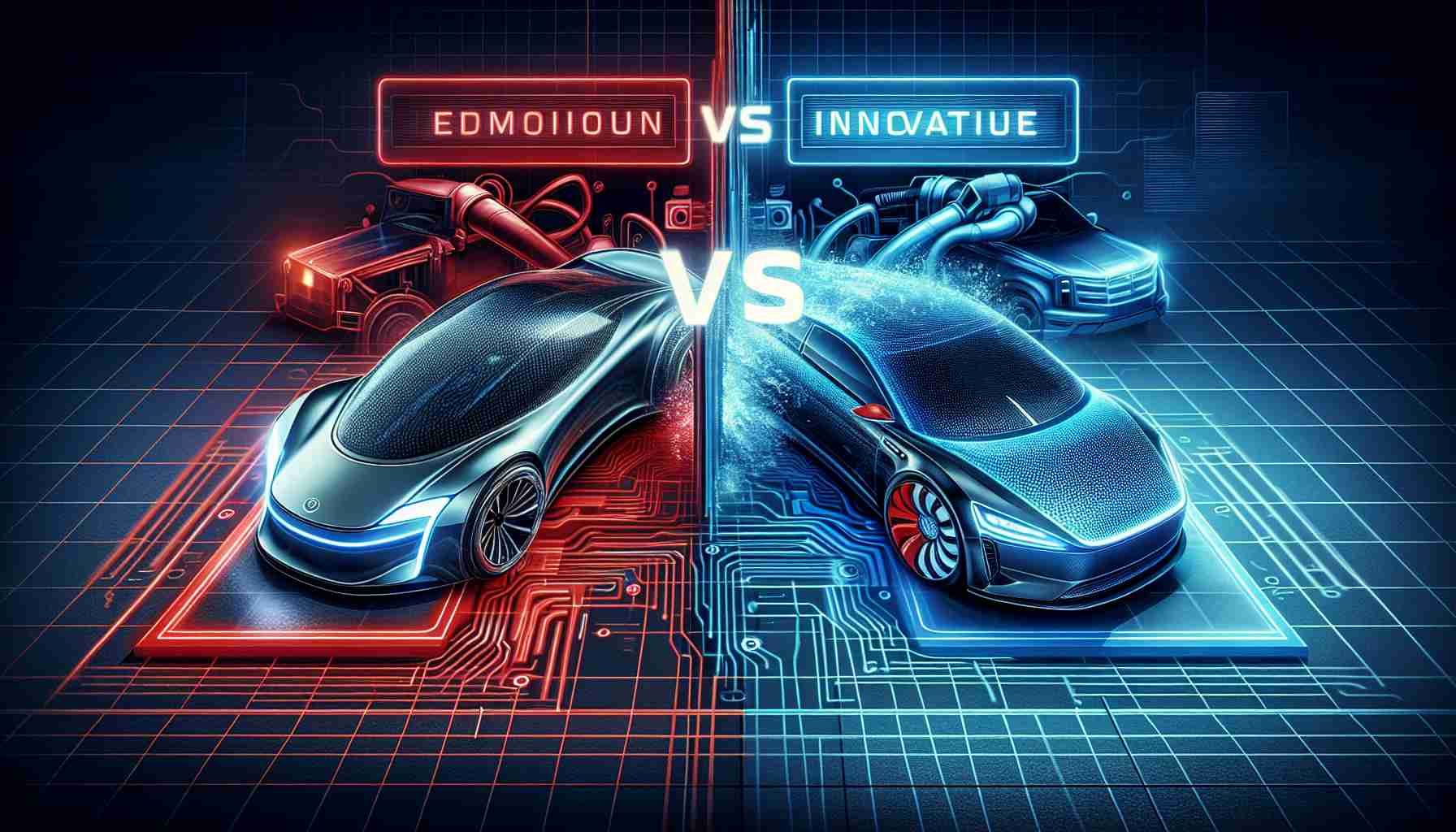- The electric vehicle market is rapidly evolving, with a notable 7% increase in sales last year in the U.S.
- Tesla retains a significant 18% share in the battery electric vehicle market, despite increasing competition.
- The company is set to launch an innovative Robotaxi service, potentially tapping into the $480 billion autonomous ride-hailing market.
- Rivian stands out for its innovation and high owner satisfaction, backed by strategic investors like Volkswagen and Amazon.
- Rivian’s R2 SUV aims to attract budget-conscious consumers with a price point of $45,000.
- Your investment decision should align with your risk tolerance and vision for the EV industry’s future.
As the electric vehicle (EV) market surges, it’s becoming increasingly challenging to identify the standout stocks. Last year, EV sales in the U.S. skyrocketed by 7%, but share prices for many brands have fluctuated, leaving investors unsure about where to place their bets.
Leading the pack is Tesla, holding an impressive 18% of the battery electric vehicle market. Despite facing growing competition from start-ups and established automakers alike, Tesla’s early dominance allows it to navigate challenges like material costs and component shortages. Critics highlight that some Tesla models are aging, but the company is stirring excitement with its upcoming Robotaxi service, which could tap into the booming $480 billion autonomous ride-hailing market by 2032.
Then there’s Rivian, a new player with a reputation for innovation and high owner satisfaction, ranking at the top of Consumer Reports. Backed by heavyweights like Volkswagen and Amazon, Rivian recently tackled production woes and is on track to achieve its first gross profit. The anticipated R2 SUV will offer a more budget-friendly entry point at $45,000, potentially expanding its customer base significantly.
So, which stock should you choose? Tesla’s strength lies in its established presence and profitability, making it a stable choice for those willing to pay a premium. On the other hand, Rivian represents a more speculative investment, with exciting growth potential driven by cost-cutting measures and strategic partnerships.
Ultimately, your investment choice depends on your appetite for risk and your vision for the future of the electric vehicle industry.
Unlocking the Future of Electric Vehicles: Which Stocks Will Power Your Portfolio?
The Electric Vehicle Market Overview
As the electric vehicle (EV) market continues to grow exponentially, increased competition and rapid innovation are reshaping the landscape. In just the last year, EV sales in the U.S. accelerated by another 10%, indicating sustained consumer interest and adoption. Analysts predict that by 2030, EVs will make up approximately 30% of new car sales, driven by advancing technologies and governmental support for greener alternatives.
Key Player Insights
# 1. Tesla: Market Leader with Strong Advantages
Although Tesla remains the dominant force with 18% of the battery electric vehicle market, it is also innovating to enhance its offerings. The new Model Y and Model S variants, augmented with over-the-air updates, keep it technologically competitive. Moreover, reports suggest that Tesla’s entry into energy storage and solar markets could provide additional revenue streams.
# 2. Rivian: Innovation on the Rise
Known for its electric trucks and SUVs, Rivian’s R2 SUV is anticipated to disrupt the market by providing a more economical selection, targeting first-time EV buyers. Additionally, Rivian’s strategies to enhance production logistics and supply chain management could significantly enhance profitability in the coming quarters.
Pros and Cons of Investing in Tesla vs. Rivian
# Tesla
– Pros: Strong brand loyalty, established market dominance, robust supply chain, and a diversified product portfolio.
– Cons: Increased competition, aging models, potential overvaluation.
# Rivian
– Pros: Fresh product offerings, high owner satisfaction scores, financial backing from Amazon and Ford, and innovative features.
– Cons: Production capacity risks, speculative stock nature, and reliance on ongoing external financing.
Emerging Trends and Innovations
Market Trends: The growth of charging infrastructure is a critical trend that supports EV adoption. Experts project an increase in charging stations by 300% globally by 2025, bolstering the EV ecosystem.
Technological Innovations: Advances in battery technology, like solid-state batteries, are set to revolutionize range and charging efficiency, with companies racing to achieve breakthroughs that could reduce charging times to under 15 minutes.
Frequently Asked Questions
Q1: How do I choose between Tesla and Rivian for investment?
A1: The choice between Tesla and Rivian depends on your investment strategy. If you’re seeking stability and established market leadership, Tesla is favorable. For aggressive growth potential and innovation, consider Rivian, albeit with higher risk.
Q2: Are there any other significant players in the EV market?
A2: Yes, other notable manufacturers include Ford (with the Mustang Mach-E and F-150 Lightning), Lucid Motors (luxury sector), and general market participants like VW and Hyundai, broadening choices for investors.
Q3: What are the environmental implications of investing in EV companies?
A3: Investing in EV companies can align with sustainability goals due to reduced emissions from electric vehicles compared to traditional gas-powered cars. However, consideration should be given to the environmental impact of battery production and material sourcing.
Conclusion
As the journey toward a sustainable transportation future unfolds, both established players like Tesla and innovative start-ups like Rivian present unique investment opportunities. By evaluating their strengths, weaknesses, and market positions, investors can make informed decisions tailored to their financial goals.
For more information on the electric vehicle market, visit Electric Vehicle World.



















